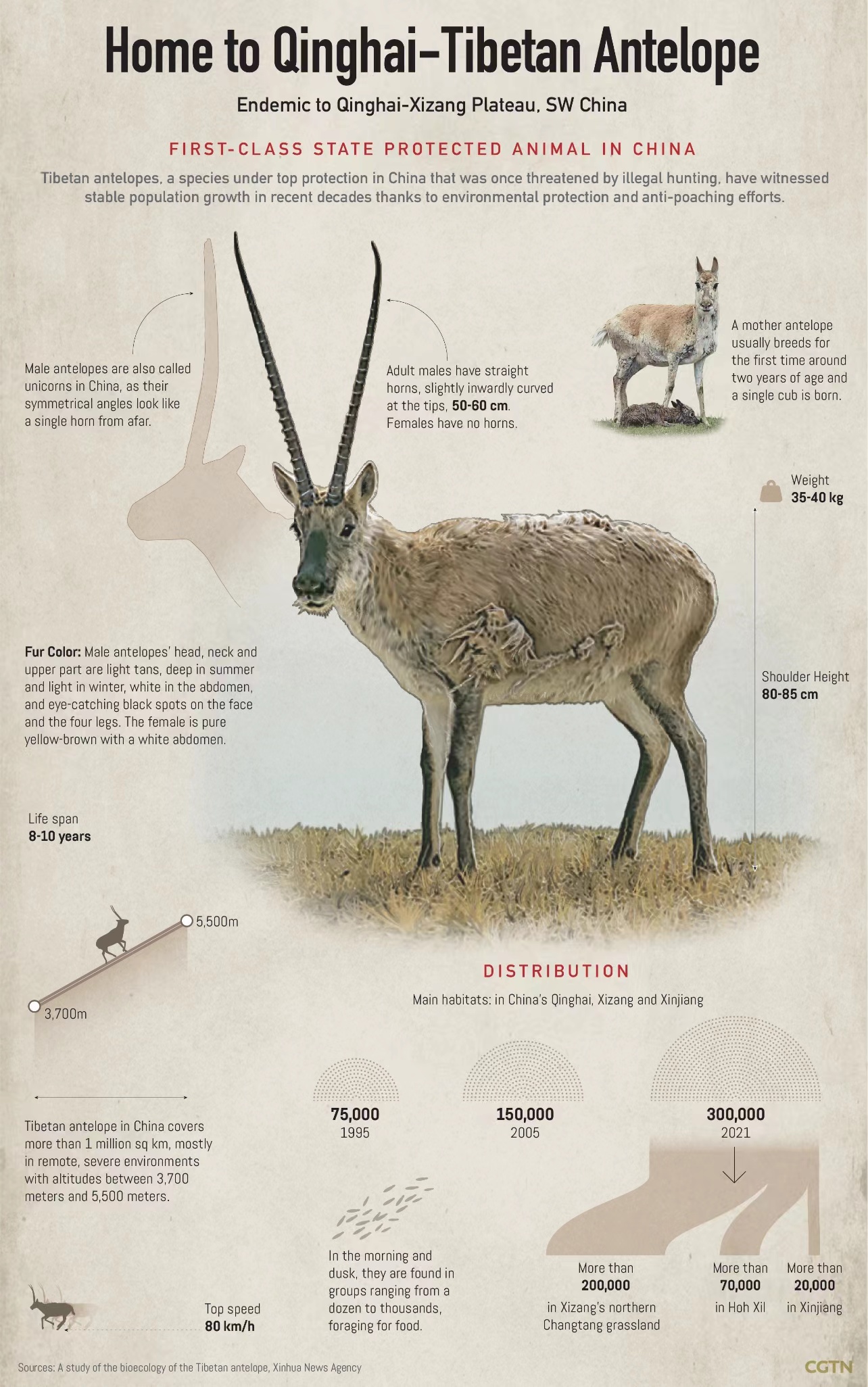The population of Tibetan antelopes, a species under top protection in China that was once threatened by illegal hunting, has grown steadily thanks to environmental protection and anti-poaching efforts.
The number of Tibetan antelopes in China has quadrupled in the past 40 years, reaching about 300,000 from fewer than 70,000 in the 1980s and 1990s, according to the country's National Forestry and Grassland Administration.

Tibetan antelopes are mostly found in the plateau region of western China, including Xizang Autonomous Region, Qinghai Province and Xinjiang Uygur Autonomous Region. The species is under first-class state protection in China.
In recent decades, unremitting conservation efforts have been made to improve its habitat and crack down on illegal hunting, which resulted in its population bouncing back.
To protect Tibetan antelope, China has established several nature reserves. In 1983, the Altunshan Nature Reserve was set up and the Chang Tang Nature Reserve was established in 1992, which is now the largest nature reserve in China. In 1995, the Qinghai Hoh Xil Nature Reserve was established, followed by the Sanjiangyuan National Park.
The migration of the Tibetan antelope is regarded as one of the most spectacular migrations of ungulates in the world.
Every May to August, the vast majority of female Tibetan antelopes on the Qinghai-Xizang Plateau migrate to give birth from the Three-River-Source region, the Altun Mountains and Qiangtang. Pregnant Tibetan antelopes will migrate to breeding grounds hundreds of kilometers away, and then go back to their habitat with the newborn antelopes.
To protect the migration and calving, staff at Sanjiangyuan National Park is taking measures such as traffic control and a ban on honking after observing the movement of the herds, to create a quiet and safe migration route for the antelopes.
(Cover image designed by CGTN's Xing Cheng and infographic designed by CGTN's Mukesh Mohanan.)
(If you have specific expertise and want to contribute, or if you have a topic of interest that you'd like to share with us, please email us at nature@cgtn.com.)